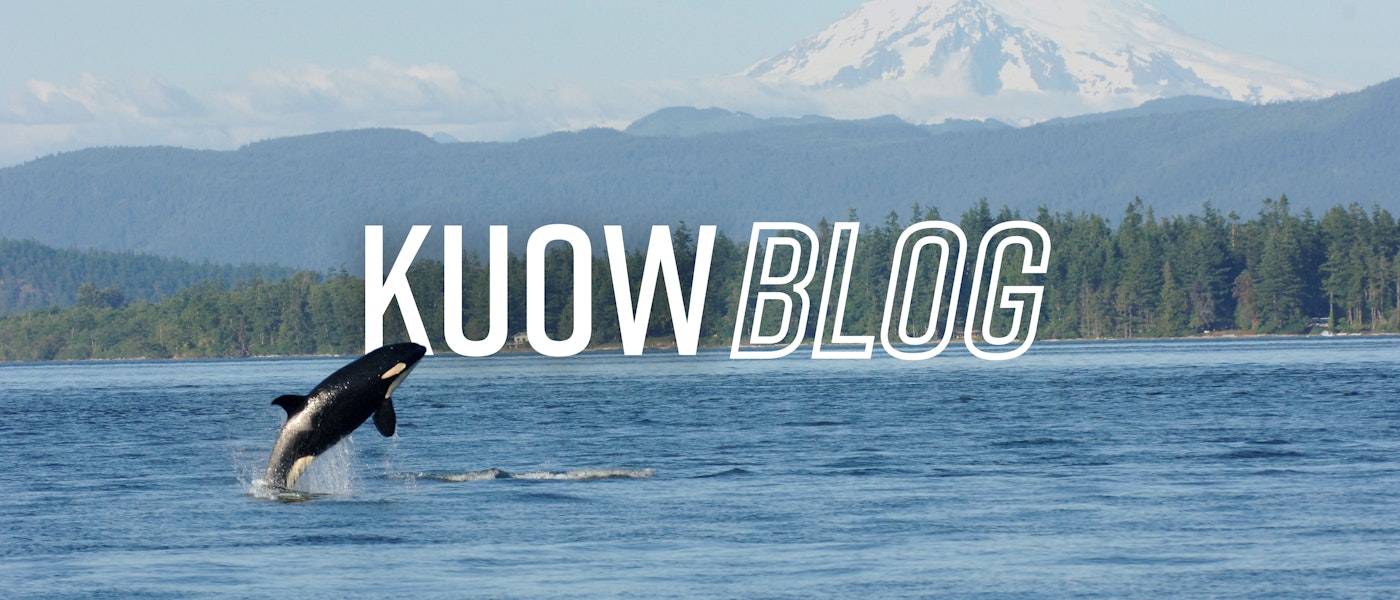

KUOW Blog
News, factoids, and insights from KUOW's newsroom. And maybe some peeks behind the scenes. Check back daily for updates.
Have any leads or feedback for the KUOW Blog? Contact Dyer Oxley at dyer@kuow.org.
Stories
-
Sen. Murray pushes for outside investigation into Tacoma ICE facility
Government
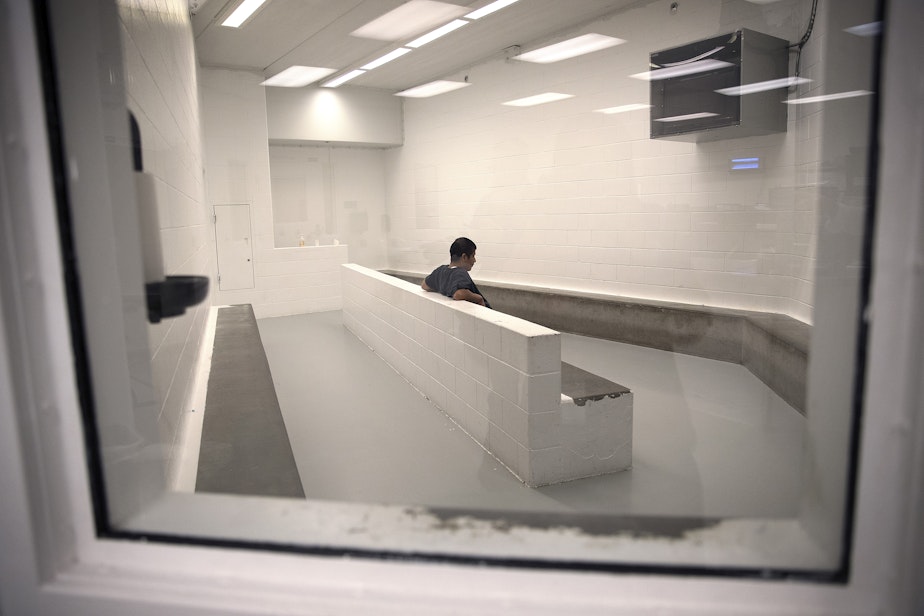 A detainee sits in the intake area at the Northwest Detention Center on Wednesday, June 21, 2017, in Tacoma.KUOW Photo/Megan Farmer
A detainee sits in the intake area at the Northwest Detention Center on Wednesday, June 21, 2017, in Tacoma.KUOW Photo/Megan FarmerSen. Patty Murray has set her sights on the detention facility in Tacoma and has urged Homeland Security officials to investigate its conditions and policies.
"I have been very frustrated by recent reports on the overuse of isolation from the general population at ICE facilities — including at the Northwest ICE Processing Center in Tacoma," Sen. Murray said Wednesday, during a Senate Appropriations Homeland Security subcommittee meeting Monday.
RELATED: WA plans to reduce solitary confinement, advocates say reforms are long overdue
Sen. Murray's comments were directed at Dept. of Homeland Security Secretary Alejandro Mayorkas, who was brought into the hearing during budget discussions. She cited University of Washington research that concluded half of ICE's 10 longest administrative segregations (solitary confinement) over the past five years were at the Northwest Detention Center, a privately run facility in Tacoma.
"And I want to stress how concerning it is that ICE continues to use this practice so frequently for so many individuals and reportedly does so without consistent, accurate documentation of its use," Murray said.
Mayorkas said he is reviewing the issue with ICE, that "it’s a very case specific issue," and noted that sometimes the separations are requested by the detainees for safety reasons. He also said he would be "very pleased to consider" an investigation.
Sen. Murray's office highlighted the exchange in a press release shortly after the meeting.
This is not the first time Mayorkas has heard of this issue from the senator. Murray, and other lawmakers, sent a letter in early April, following the death of a detainee in Tacoma by suicide, who was separated and placed in solitary confinement. More recently, the Washington State Standard reported that in less than three months this year, there have been at least six suicide attempts at the Tacoma site.
RELATED: State regulators denied access to privately run ICE detention center in Tacoma
Previously, Murray's office has noted a report that found solitary confinement was used at ICE facilities more than 14,000 times between 2018 and 2023. The instances averaged 27 days.
Continue reading » -
Paraeducators strike in Port Angeles. But can strapped school districts afford to pay them more?
Education
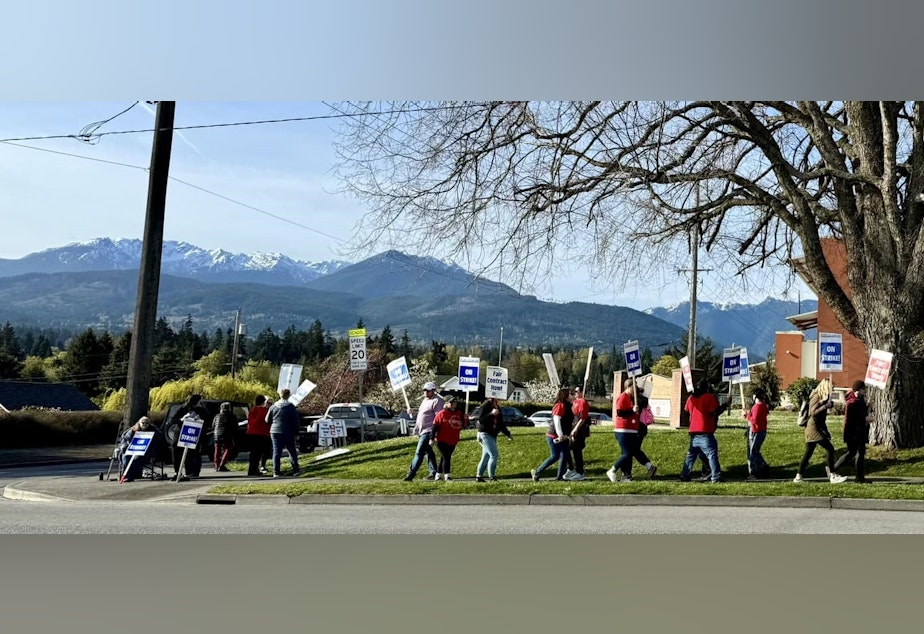 The Port Angeles School District's 135 paraprofessionals have been on strike for four days.Courtesy of Port Angeles Paraeducators Association
The Port Angeles School District's 135 paraprofessionals have been on strike for four days.Courtesy of Port Angeles Paraeducators AssociationThe Port Angeles School District's more than 3,500 students are getting an extended spring break, as schools remained closed this week because of a paraeducator strike.
The strike on Washington's Olympic Peninsula is a sign of the budget challenges many school districts across the state and nation are facing.
Rebecca Winters has been a paraeducator in Port Angeles for 20 years, and has been president of their union for five. She loves her job supporting students with disabilities in the classroom.
But it's not always easy — Winters has been kicked and spit on throughout her career, as she's tried to ensure struggling students are learning.
"A big part of our day is taking on a lot of aggression, a lot of sadness, a lot of anger from students," she said, "and finding creative ways to get them reengaged."
RELATED: In southwest Washington, educator strikes stall the start of school
The pay isn't great, either. On average, Washington paraeducators make between $22 and $27 per hour, according to the Office of the Superintendent of Public Instruction.
Winters says many of her colleagues get second or third jobs to make ends meet, and that's why they're asking for a 3.7% cost-of-living raise.
"That is in place of dinner time with their family, it's during their weekends, so they don't have any breaks and time to rest," she said.
Continue reading » -
Seattle has 2 new parks, but they don't have names. Any ideas?
Government
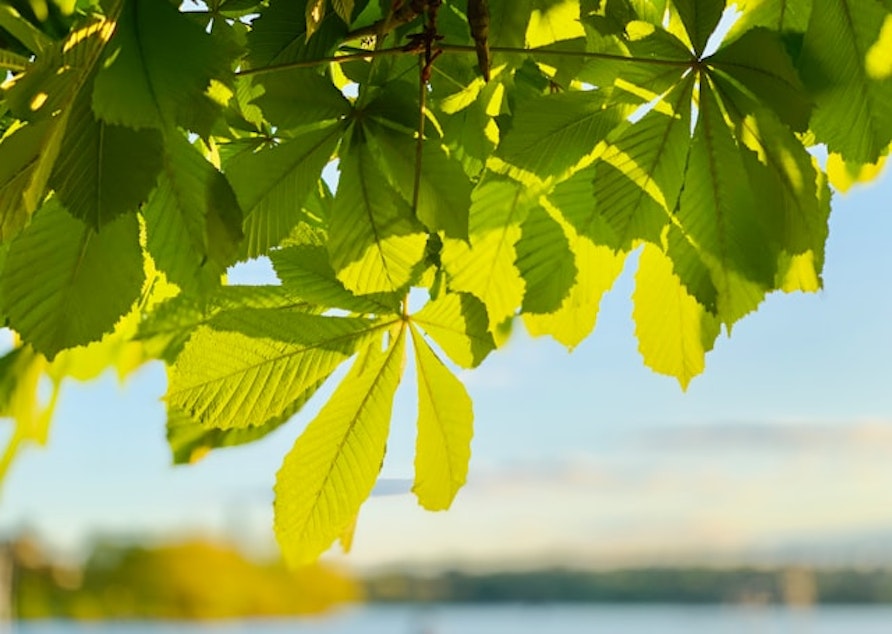
Seattle is slated to get two new parks. But they don't have names yet. Maybe you can fix that.
The city of Seattle acquires various plots of land over the years that it now wants to turn into public parks.
RELATED: After years of waiting, Seattle is getting two new dog parks. They each cost more than $1 million
For example, in the North Rainier neighborhood (South Charlestown Street between 34th and 35th Avenues South), Seattle bought a parcel in 2011, then another in 2016, and another in 2021. It's putting these together to make new park space. The Parks and Recreation Department hasn't said much about plans for this site, but has said that "impervious surfacing," aka concrete or asphalt, will be limited to 15% of the site. It also mentions "trail and circulation surfaces."
The other location is in the South Park neighborhood (8456 Dallas Avenue South). The city purchased this .83 acres at the South Park River Walk in 2014. The Parks and Recreation Department says plans are being finalized, but so far they're aiming for an event space, play spaces for kids, seating, an open lawn area, and bioswales (giant rain garden-like features that filter pollution).
Name suggestions for the parks are due by Friday, May 31, 2024. A naming committee will take on the selection process.
RELATED: The love story that grew Seattle's 'secret garden'
The committee will have three members, selected by the Parks and Rec board, the City Council's parks committee, and the Seattle Parks and Recreation superintendent. They'll take into account names with geological features, historical or cultural significance, and location. Parks Superintendent A.P. Diaz will make the final name decision.
Continue reading » -
Molbak's back from the dead in Woodinville
While Molbak's Garden and Home store may have recently shut down, owners now say it will bloom again in Woodinville. However, the fruits of its labor will be a bit different.
Goodbye home and garden store. Hello Green Phoenix Collaborative at Molbak's. But to make it happen, the collaborative is asking for Molbak's fans to pitch in some funding.
"Green Phoenix Collaborative will transform our long-time home into a transformational community hub for all things gardening, green, and climate-friendly," the collaborative's website states. "There will be a wide range of programs, classes, and events and lots of different ways for people to get involved."
RELATED: Spring 2024 gardening will be a bit different. Ciscoe Morris has a few tips
Molbak's Garden and Home store first set up shop in 1956. Woodinville grew up around it. In recent years, the family-run store collaborated with a developer to reimagine the downtown area, but in late 2023, a drama emerged between the two parties. Molbak's alleged they were kicked out of the project. The developer said otherwise. Each party pointed green thumbs of blame at each other. Molbak's ultimately decided to close up shop.
Now, about two months after it closed, Molbak's officials say the business will evolve into a new operation.
The Green Phoenix Collaborative at Molbak's is essentially a community gathering space centered on gardening and related themes. Organizers say this new endeavor will be "built on the heritage of Molbak’s," however, the approach will be different. The operation will have five areas of focus: products, services, education, inspiration, and innovation.
This means the property will host pop-up stores for gardening products and plants; seasonal farmers markets and festivals; a community garden; classes and workshops; programs for kids; space to sample local wines, beers, and food. They also plan to produce podcasts and online classes. Molbak's says it plans to be at the same property "for the next few years."
To do all this, the collective is asking for contributions. It aims to raise $2.5 million by May 9. Its Indiegogo campaign states that if 10% of Molbak's customer base contributes $125, they can reach their goal.
If they fail to reach their goal, all money will be returned to folks who pitched in. The collective says it's already put $1 million to "pre-seed Green Phoenix Collaborative." It wants more funding to hire workers and fund its programming.
Continue reading » -
Money coach has a few thoughts about living in expensive Seattle
Economy
 As the cost of living in the Seattle area rises, and the search for affordability continues, a financial coach tells KUOW's Seattle Now that budgeting and money are relative to each individual.
As the cost of living in the Seattle area rises, and the search for affordability continues, a financial coach tells KUOW's Seattle Now that budgeting and money are relative to each individual.Seattle is expensive. That's no secret. But to many people, the concept of money and how to manage it feels like a big secret. That's a perception that Suzanne Klenk aims to change.
“I’m an impulse spender, which is rough for a financial coach, but I’m in therapy, so it’s OK," Klenk told Seattle Now.
RELATED: You need to earn how much for a 'starter home' in Seattle?!
Klenk is a financial coach and educator* who works at the Washington State Employees Credit Union, a nonprofit open to anyone living or working in the state. She offered Seattle Now a few money management pointers, drawn from common conversations she has with people (read more about that below).
“I think the number one misconception about money is that everybody else has it and you don’t, or that people around you are handling their money differently than you are and are therefore more successful," she said. "I think that comes from social media [and] the way we are raised. We are not raised to talk about money. We know more about Snooki’s boyfriend from the East Coast than we do about our own finances.”
Still, it's difficult to live in a region like the Seattle area and not have money on the mind, from housing costs, to food prices, and other aspects of affordability. The region has recently grappled with high inflation that exceeds the national average. In fact, over the past four years, average Seattle-area inflation has only dipped below the national average twice and the gap has widened in the past two years.
Continue reading » -
Can you name Washington's next big apple? Contest is open
Food
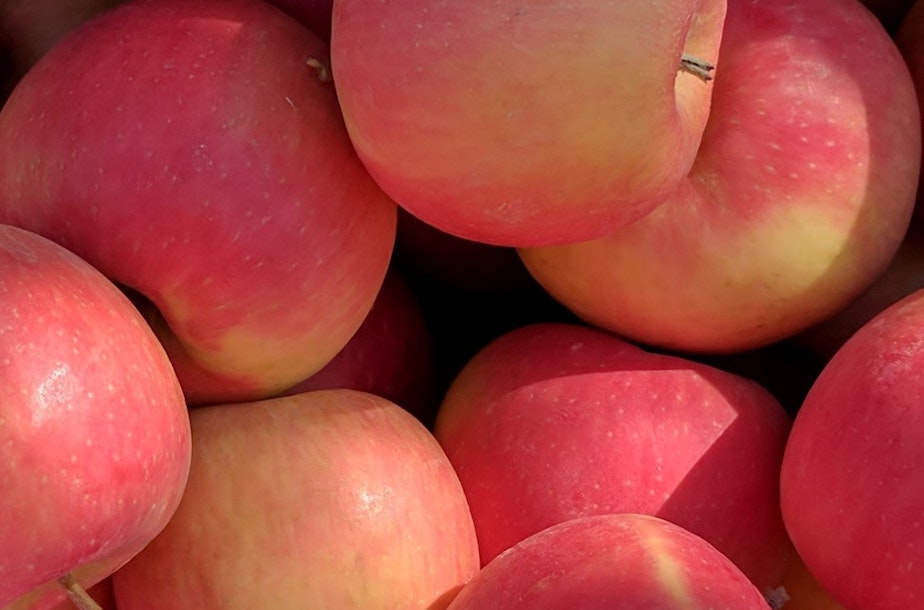 WA-64 is an apple variety developed by Washington State University. It started developing the apple in 1998 and filed for a patent in 2022. WSU expects the apple to be ready for store shelves in 2029.
WA-64 is an apple variety developed by Washington State University. It started developing the apple in 1998 and filed for a patent in 2022. WSU expects the apple to be ready for store shelves in 2029.Not since the Cosmic Crisp hit grocery shelves has Washington's apple scene had such a commotion. The state's next new apple is ready for a name, and Washington State University is asking for suggestions.
Washington State University is now holding a contest to come up with a name for this new, pink-blushed variety. The name will be trademarked.
Let's just get "Apple McAppleFace" out of the way right now (you know someone is going to suggest it).
RELATED: Last season was harsh on Washington cherry growers. The USDA is offering help
There are a few rules around naming the apple. No swearing or offensive language. No existing trademarks. You can't make references to illegal substances or activities. And you can't mention the other apples it is blended with (Honeycrisp and Cripps Pink). Also, any name drawn from Washington or WSU, or the apple's characteristics, will be given priority.
You have to be 18 or older and you can only submit one name. So make it a good one. You have until May 5 to submit your suggested apple name.
"We hope that folks are excited about the apple, even though they can't taste it or buy it for several years," said Jeremy Tamsen, Washington State University's director of innovation and commercialization, while talking with KUOW in 2023. "We're interested in getting input ... so we can find a name that really hits a home run with this apple."
If WSU does pick the name you suggest, you basically agree to hand it over, royalty free. But you won't walk away empty handed. You'll get a charcuterie board, Cougar Gold Cheese, WSU spices, coffee cup, and a water bottle. They'll also throw in a box of apples.
RELATED: At 75, Cougar Gold canned cheese is still a Washington state favorite
So far this apple has been referred to as "WA-64," which is not snazzy enough for store shelves. (Hey, "Snazzy" is not a bad name. "Honey, can you pick up some Snazzys at the store?")
Continue reading » -
Not in my valley. Some San Juan Islanders say no to solar power
Environment
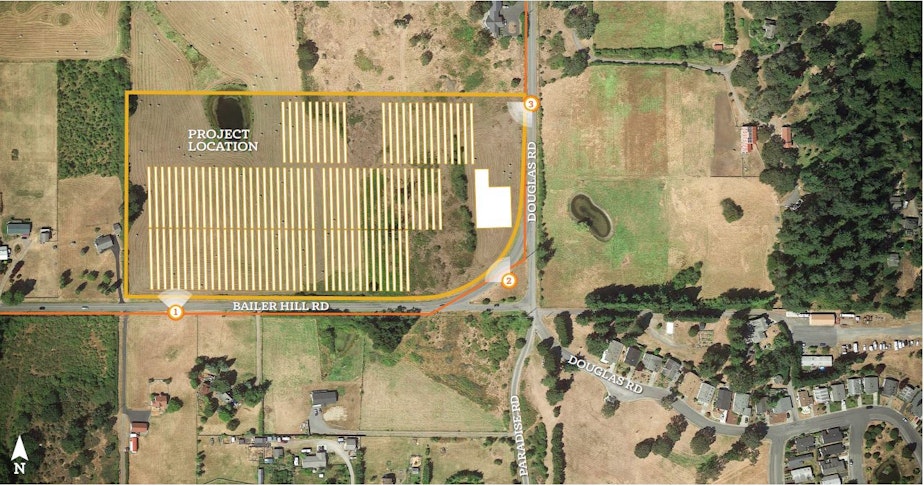 An aerial depiction of a proposed solar power and battery-storage project on San Juan Island, Washington.
An aerial depiction of a proposed solar power and battery-storage project on San Juan Island, Washington.On the San Juan Islands, most power comes from the Washington state mainland, by way of two underwater cables that are already nearing their limits as demand for electricity keeps growing.
The local electric utility wants to cover a pasture near the town of Friday Harbor with 5,200 solar panels to help San Juan Island avoid blackouts.
Officials with Orcas Power & Light Cooperative say the $13 million project would more than double San Juan County’s energy production, while its battery storage would smooth out the availability of power from intermittent sunshine. The 2.5-megawatt solar array would be big enough to power about 2,000 homes.
Some opponents of the project along the San Juan Island Scenic Byway say they welcome solar power, but not on San Juan Valley farmland preserved as open space.
RELATED: A new solar energy deal will bring power to 140,000 homes and businesses in 3 states
At a public meeting on the project, Foster Hildreth, general manager for Orcas Power & Light, said business as usual is “no longer available” for the island utility.
“Population growth, electrification of ferries, electrification of heating and transportation: All those are big loads that are by 2030 expected to basically [create] 50% more electricity need than ever before,” Hildreth said.
The utility calls the project “agri-solar” since sheep could still graze beneath the rows of solar panels, each panel swiveling on stilts to track the sun.
Utilities around the U.S. are facing local pushback as they build wind farms, solar arrays, and transmission lines to help the nation wean itself from fossil fuels and fight climate change.
Controversy over the project on San Juan Island was first reported by the Salish Current.
Former San Juan County Councilmember and planner Darcie Nielsen says she’s 100% on board with clean energy, but not at the planned location about 2 miles south of Friday Harbor in the San Juan Valley.
Continue reading » -
Do basic income programs cause people to work less? Let's ask Alaska
Economy
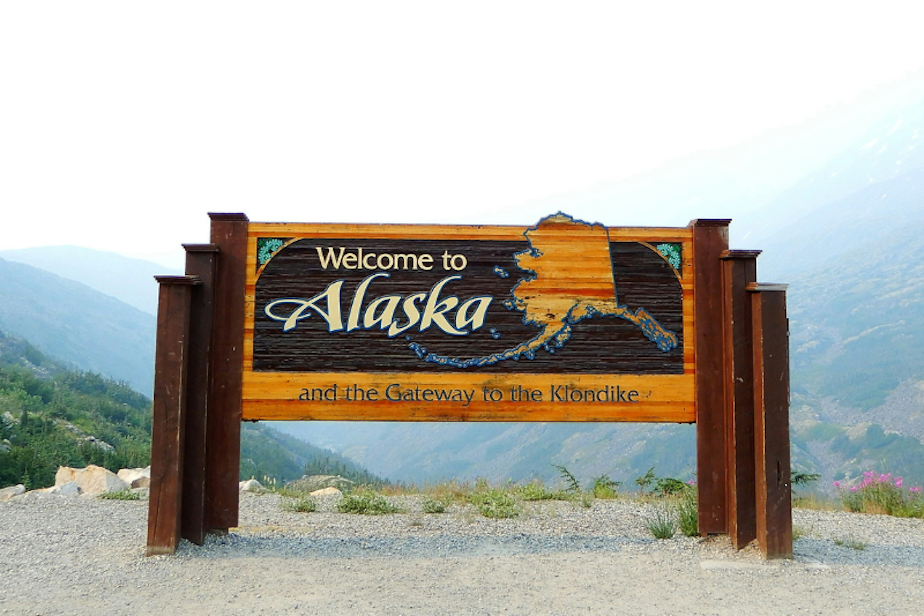 Since the early 1980s, Alaska has sent check to residents every October, generally for around $1,000 or $2,000 as part of its Public Dividend Fund, which has been looked to as a form of basic income.
Since the early 1980s, Alaska has sent check to residents every October, generally for around $1,000 or $2,000 as part of its Public Dividend Fund, which has been looked to as a form of basic income.When terms like "universal basic income" or "guaranteed basic income" are mentioned, folks generally raise an eyebrow, either out of curiosity or out of criticism.
In either case, Alaska could be looked to for answers about such programs' efficacy. That state has been sending annual checks to its residents for more than 40 years as a form of basic income. But the big picture is more nuanced, according to researcher Brett Watson.
RELATED: Can $500 a month make a dent in Seattle-area poverty?
"What does it mean for an income to be ‘basic,’ meet people’s basic needs?" Watson asked KUOW's Soundside. "Sometimes the dividend amount is pretty significant. In 2022, the dividend amount was almost $10,000 for a typical family in [Alaska]. But in other years, it’s smaller than that, and we wouldn’t think of an amount like $5,000 per family, per year, as being enough to cover a family’s basic needs. So, it might fall short of that definition of basic.”
Still, Alaska's Public Fund Dividend program has had an effect on the state.
Since the early 1980s, Alaska has sent checks to residents every October, generally for around $1,000 or $2,000. In 2020, they were for more than $3,000. A typical household could get up to $10,000.
The fund is based on the state's oil revenues. If the state gets more oil revenue one year, residents get more money in October. Less revenue, they get less. To get this check, a person has to have been an Alaska resident for one calendar year.
Watson has been studying Alaska's Public Dividend Fund for a few years. He's an associate professor of applied and natural resource economics at the University of Alaska Anchorage, and also works with the Institute of Social and Economic Research.
"People very much perceive this as regular sources of their own income and feel a lot of freedom to spend the money however they see fit," he said.
"Around the time the dividend gets paid out, in October, you see a lot of sale signs going up around town and you see a few more people crowded in some bars in town," he added. "There’s no stigma attached with that. People see this as their own money to do with as they see fit. There is very little judgement placed on neighbors for buying a snow machine or taking that family vacation to Hawaii.”
Continue reading » -
Seattle voters are in a 'back-to-basics' mood, according to latest poll
Government

"Back-to-basics." "Focus on the fundamentals." However you put it, that is the message from Seattle's Chamber of Commerce, which says its latest polling of city voters indicates a strong shift in perceptions.
"I rarely say this, but there is a lot of clarity here in terms of what Seattle voters think," said Andrew Thibault with EMC Research, which conducted polling for the Seattle Metropolitan Chamber of Commerce. "We tend to be a group who disagrees quite a bit over small differences ... the electorate is in a back-to-basics mood."
RELATED: Seattle businesses caught in tug of war between app companies and delivery drivers
"Back to basics" is a term the Chamber is using a lot when describing the results of its latest Index. This is the Chamber's status check on Seattle voters' perceptions and feelings about quality of life in the city. It conducts this poll twice a year. With help from EMC Research, 700 voters were polled in March 2024.
Still, just as its fall 2023 poll stated, Seattle residents' top concern was public safety and the homelessness crisis. Thibault's statement that voters offered "clarity" in this poll is based on a result stating that 90% of voters feel focusing on fundamentals would improve Seattle's quality of life. Such basics include public safety, road maintenance, and park upkeep.
At a press event Tuesday, Chamber CEO and President Rachel Smith said the poll questions are drawn from "competing conversations" happening in the Seattle community.
"As you look at this data, I don't think we need to have some of the ideological conversations that we've had," Smith said. "We really need to focus in on how we are going to drive results, and get the outcomes we are looking for on the fundamentals — safe streets, less potholes, responsible spending. That to me is the real big takeaway"
Since March 2022, the "quality of life" score presented in the Index has continued to rise. On a scale of 1-10, Seattle had a 3.47 quality of life score in 2022. As of March 2024, the score is 4.24.
Top 10 concerns of Seattle voters
- Homelessness (50% of those polled)
- Crime/drugs/public safety (46%)
- Cost of living/affordable housing (26%)
- Taxes (5%)
- Racial issues/policing/ police brutality (4%)
- Government/public leaders (4%)
- Traffic/congestion (4%)
- Mental health/healthcare (4%)
- Public transportation (3%)
- Cleanliness of Seattle (3%)
Poll highlights
Continue reading » -
Seattle's Full Tilt Ice Cream announces closures
Arts & Life
 Courtney Cook via Unsplash
Courtney Cook via UnsplashMore changes are coming to Full Tilt Ice Cream. Co-owner Ann Magyar announced Monday the closure of its White Center store, along with its wholesale operation.
The decision came five weeks following the death of her husband and the business's founder Justin Kline.
Full Tilt opened in June 2008 in White Center. The idea was to create a fun space for families and artists.
Full Tilt expanded to Ballard, University District, Capitol Hill, and Columbia City. It wasn’t unusual to find pinball machines at the shops. In recent years, three locations were closed; the White Center and Columbia City stores remained.
In a letter shared on Instagram, Magyar wrote, “Full Tilt was never just about the ice cream. But now Justin is gone, and it just isn’t the same without him. It’s time for Full Tilt as we know it to end.”
Magyar thanked the community for support over the years.
Full Tilt’s wholesale operation will cease at the end of April. The White Center location’s last day will be May 26. The Columbia City shop will remain open, but gift cards, gift certificates, or birthday party certificates from other locations will not be accepted.
Continue reading » -
Rainier Beach's Be'er Sheva Park to officially reopen amid $2.5 million makeover
Environment
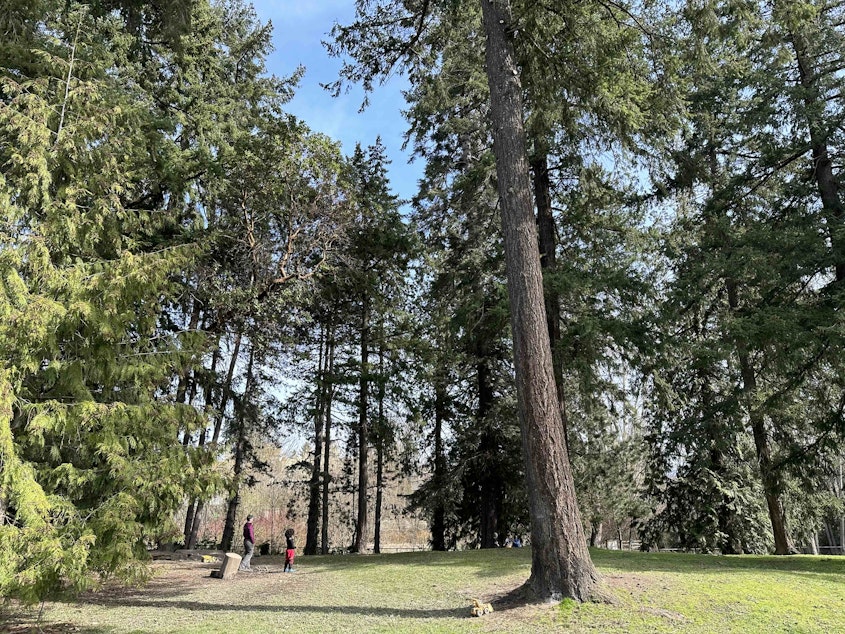 Nature was the classroom for Tiny Trees Preschool students at Be'er Sheva Park in Seattle's Rainier Beach neighborhood.Ann Dornfeld/KUOW Photo
Nature was the classroom for Tiny Trees Preschool students at Be'er Sheva Park in Seattle's Rainier Beach neighborhood.Ann Dornfeld/KUOW PhotoAmid a yearslong, $2.5 million effort to revitalize the waterfront park, Be’er Sheva Park is slated for a grand reopening on Saturday.
The park's updates, which are still underway in a three-phase process, so far include a community stage, barbecue grills, lighted walking paths, and the addition of a boat-launch.
The park, which sits across the street from the Rainier Beach High School and borders the Rainier Beach Urban Farm and Wetland, is a staple green space for the community that connects it to Lake Washington.
Community members say that neighborhood-sourced projects like these should have more of the city’s attention and resources.
“This project would not have moved forward without authentic buy-in from the community,” said Sally Li, co-chair of the Rainier Beach Link2Lake committee, which has led the park revitalization efforts.
“I think being residents ourselves, we wanted to make sure our first priority was uniting a very diverse neighborhood — diverse in every means — to come together to give us a park plan that was going to be reflective of all the different values,” Li said.
The next stages of development surround the park’s water, Mapes Creek, as ecologists work to restore the habitat for salmon and other fish. Those projects are slated to be completed by the end of the year. The final phase of renovations will be to the park’s play area, and will include the installation of fitness equipment.
The development of Be’er Sheva Park is just one part of a campaign to activate the neighborhood. Link2Lake is also working with the Rainier Beach Action Coalition to redevelop Henderson Street, the road that leads from the Rainier Beach light rail station to Be’er Sheva Park.
“Be’er Sheva really kicked off that larger vision for our neighborhood,” said Jenny Frankl, who’s on the boards of both projects. “And so now we are still in the fight…Henderson is our next big obstacle to tackle.”
Gregory Davis, the managing strategist for Rainier Beach Action Coalition, said the groups rely on advocating for these neighborhood changes at the city level.
Continue reading » -
Washington's high-capacity magazine ban heads to state Supreme Court after 'unconstitutional' ruling
Government
 In this April 10, 2013, file photo, a stag arms AR-15 rifle with 30 round, left, and 10 round magazines is displayed in New Britain, Conn.AP Photo/Charles Krupa
In this April 10, 2013, file photo, a stag arms AR-15 rifle with 30 round, left, and 10 round magazines is displayed in New Britain, Conn.AP Photo/Charles KrupaAfter a Cowlitz County judge ruled Washington's ban on high-capacity magazines is unconstitutional at the state and federal levels, state Attorney General Bob Ferguson quickly said the decision was "incorrect," and moved the case up the legal ladder. The issue is now before the state Supreme Court.
"This law is constitutional," Ferguson said in a statement. "It is also essential to addressing mass shootings in our communities. This law saves lives, and I will continue to defend it.”
RELATED: Federal Way store owner to pay $3 million for violating WA gun law
Ferguson spearheaded an effort to ban the sale of high-capacity magazines (which hold more than 10 rounds) in Washington state. The Legislature passed the ban and it went into effect in July 2022.
Since then, the Attorney General's Office has sent undercover investigators into more than 100 gun shops around the state to ensure the new law was being followed. A handful of firearm stores were found to be openly or covertly violating the ban, leading to tens of thousands of dollars in fines.
One such shop was Gator's Custom Guns in Kelso, Wash., which, the Attorney General's Office alleges, continued to sell a stockpile of high-capacity magazines in the open. The state sued the store in September 2023. That case went to Cowlitz County Superior Court, the county Kelso is in.
But the state's lawsuit may have backfired. Cowlitz County Superior Court Judge Gary Bashor ruled Monday that the state's ban is unconstitutional. Ferguson quickly responded and filed a motion with the state's Supreme Court.
Washington's Supreme Court has granted a stay of Bashor's ruling, which means the state's ban on high-capacity magazines will remain in effect as this case moves forward.
“Today’s decision is incorrect ... Every court in Washington and across the country [that has considered] challenges to a ban on the sale of high-capacity magazines under the U.S. or Washington Constitution has either rejected that challenge or been overruled," Ferguson said.
Continue reading »
